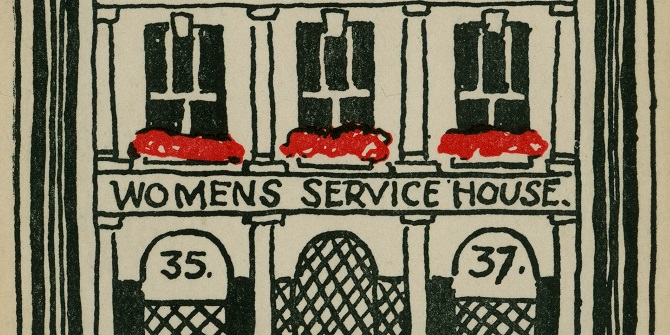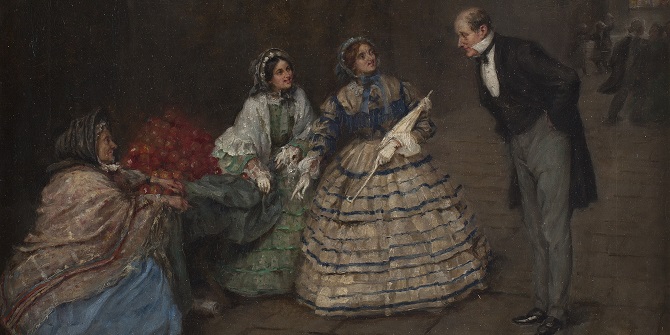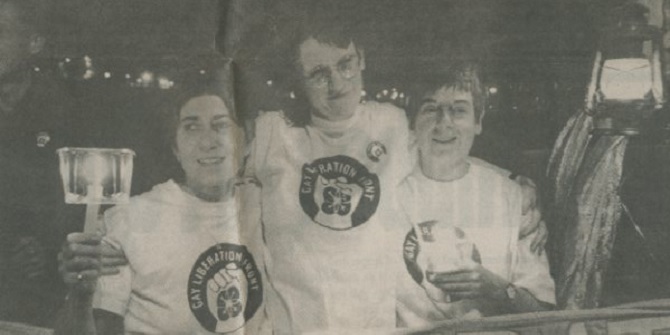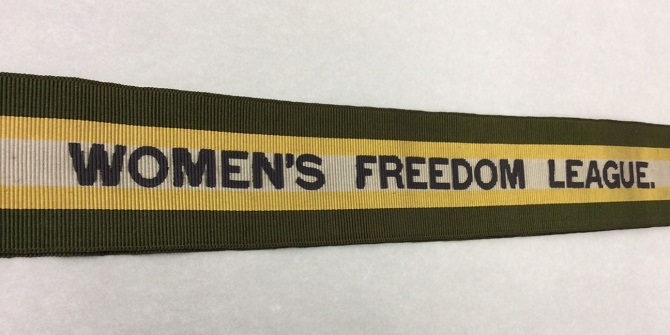When Vera Douie was appointed librarian of the Women’s Service Library (now The Women’s Library) in January 1926, it was a few years before the library was ready to accept large book collections. Gillian Murphy takes a look at some of those first book donors and collections.
The first major book collection of over 330 feminist books was donated in March 1930. Nancy Astor MP had originally purchased these books for Crosby Hall. She was Vice President of the National Union of Societies for Equal Citizenship from 1920, the year after she took her seat in Parliament. Crosby Hall, situated on the Chelsea embankment, was an international clubhouse and hall of residence for women graduates of all nationalities engaged in postgraduate work in London. It was the headquarters of the British Federation of University Women.
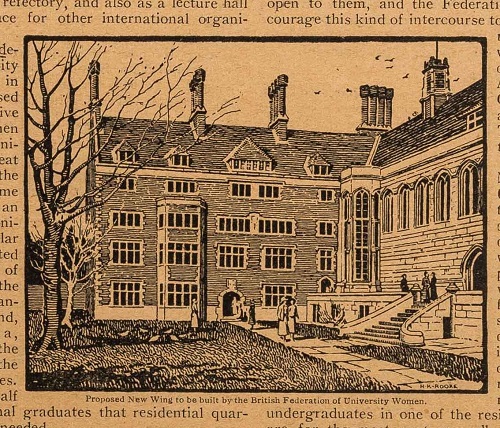
In 1931, the Women’s Service Library accepted two libraries – the Cavendish Bentinck Library and Edward Wright Library. Before this move, these libraries had been housed in the offices of the National Union of Societies for Equal Citizenship at 62 Oxford Street, London. In 1922, the National Union published a list of books of interest to women as citizens, which you can read here.
At this point, the Edward Wright and Cavendish Bentinck libraries contained 3,000 volumes consisting of valuable and interesting historical books on feminism as well as sections on current political, economic and social problems. Users could find books on housing, central and local government, economics and finance, industrial organisations and social conditions, maternity and child welfare, women and the law, to list a few of the sections from the bibliography.
The books and pamphlets in the Edward Wright Library were purchased with the legacy of suffragist Edward Wright. His father was the famous bacteriologist and immunologist, Sir Almroth Wright, who strongly opposed women’s suffrage.
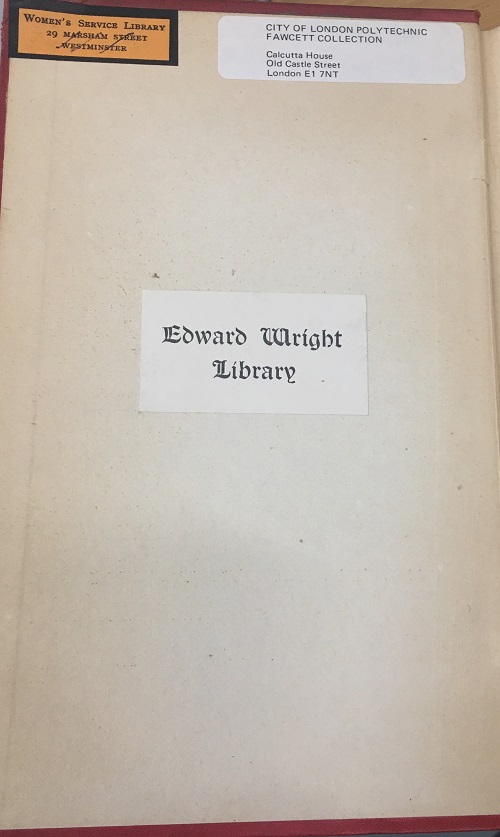
The Cavendish Bentinck Library belonged to the suffragist and socialist Ruth Cavendish Bentinck.
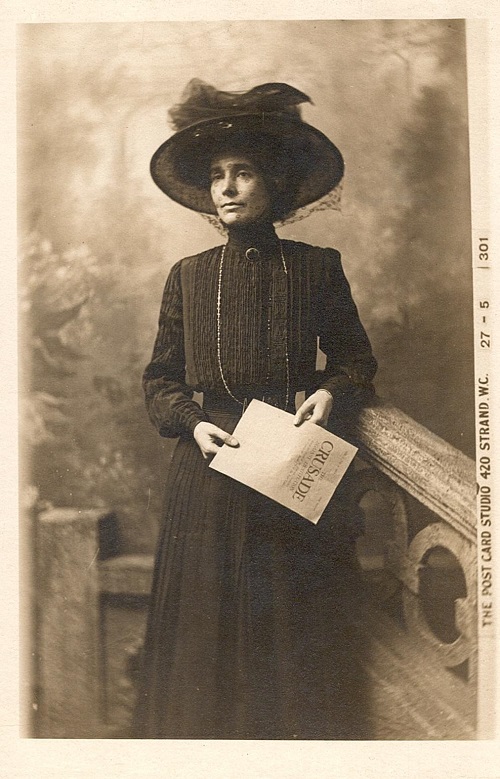
Ruth was involved with the National Federation of Women Workers and the Fabian Society. She was also a keen supporter of the women’s suffrage movement, quite willing to walk up and down outside the Houses of Parliament with billboards strapped to her.
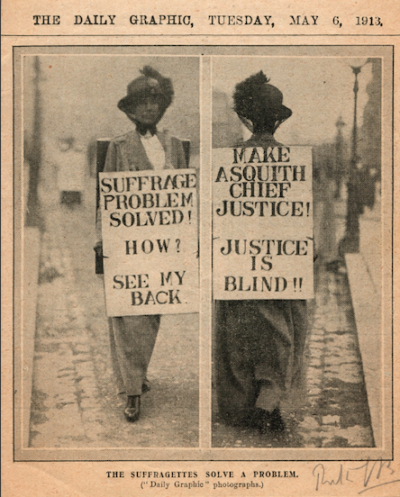
Ruth was an eloquent speaker and toured the country giving speeches about women’s suffrage. She also organised, and took part in, the Women’s March from Edinburgh to London in October 1912. She later joined the executive of the United Suffragists, a group set up by Fred and Emmeline Pethick-Lawrence.
Ruth had started to collect books on and for women in 1909 with the objective of providing information to women who could all vote in local elections from 1896. Ruth sat on the executive committee of the London Society for Women’s Service and continued to donate books to the Library until she died in 1953.
The next major book collection was made in 1934. May Wallas (daughter of Graham Wallas, co-founder of LSE and on the advisory committee of the London Society for Women’s Service) donated a collection of 17th and 18th century books belonging to her mother. Ada Wallas had consulted these books while writing Before the Bluestockings (1929) and for a future biography of Hannah More, which she did not live to complete.
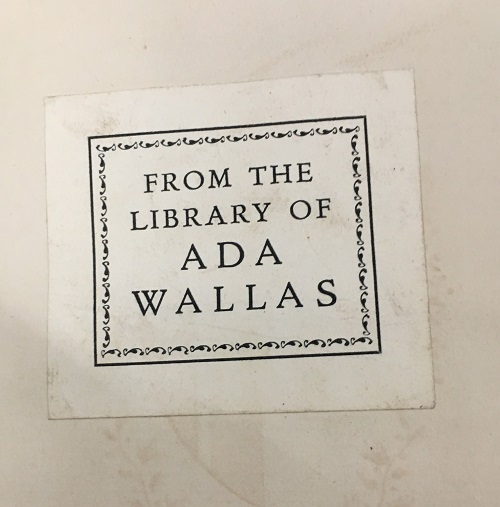
Ada Wallas was interested in the education of women and girls. Her collection contained books by Hannah Woolley. Hannah ran a small school at the age of 14 and then became a governess to the families of “Persons of Honour”. She later married and started writing about domestic life, penning works such as: The Ladies Delight, The Gentlewoman’s Companion and The Queen-Like Closet. We have a digital copy of The Queen-Like Closet (1675) with its recipes to cook and bake and remedies to cure ailments.
Another book we have from Ada’s collection is A Serious Proposal to the Ladies (1695) by Mary Astell. Mary was the daughter of a Newcastle merchant, who proposed a college for women in Chelsea so that they could educate themselves, which was impossible in a male-dominated world. Nearly a hundred years later, Mary Wollstonecraft wrote a similar idea in Thoughts on the education of daughters: with reflections on female conduct in the more important duties of life (1787).
In 1935, Dr Sigrid Pearson donated books belonging to family friend, Lina Eckenstein. Lina taught, translated, indexed, and worked as a research assistant for many eminent male scholars. She belonged to the Man and Women Club set up by Karl Pearson, presenting papers on topics such as “Sexual Relations among the Romans”. Lina wrote many books on different topics including Woman under Monasticism (1896), Little Princess and the Plot (1892), Through the Casentino with hints for the traveller (1902) and Tukankh-aten (1924). Her collection is testament to her many interests which range from ecclesiastical history, children’s literature, archaeology (she helped Hilda and Flinders Petrie with their excavations in Egypt) to women’s position in society. Among her donations was this legal tract, for example, Uxor Ebraica: sed de nuptiis et divortiis (Jewish wife: or about marriage and divorce) from 1673 by the English jurist, John Selden.
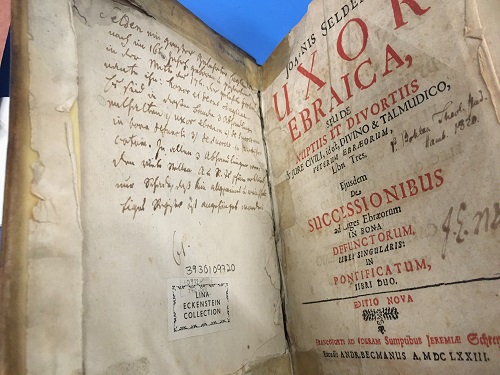
Lina was also interested in the works of women authors such as Aphra Behn, Madame de Stael, Charlotte Bronte, Frances Burney and George Eliot, among them, and her collection includes many first editions. Here’s a digital copy of All the histories and novels written by the late ingenious Mrs Behn and Frances Burney’s Evelina.
These are just four books owners of the Women’s Library. There are many more as you can see from these bookplates.
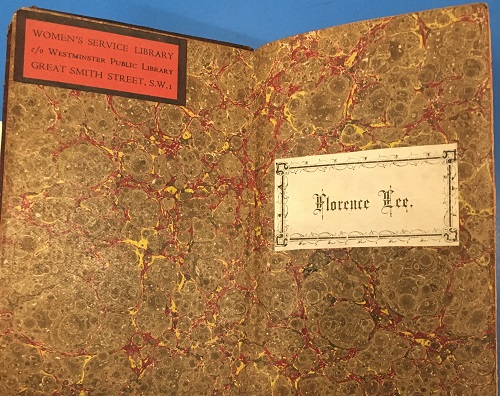
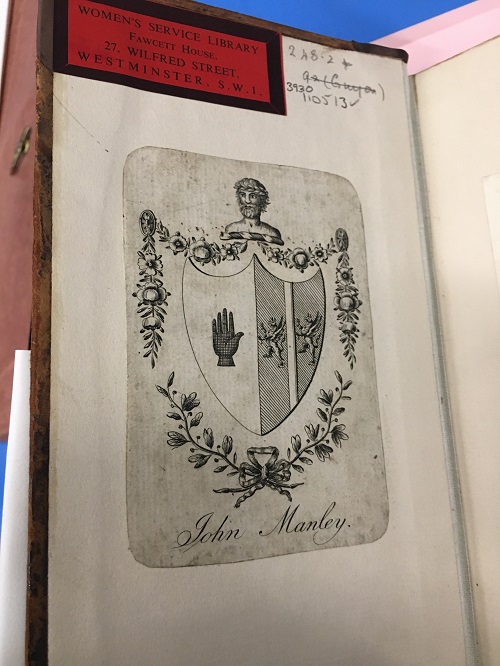
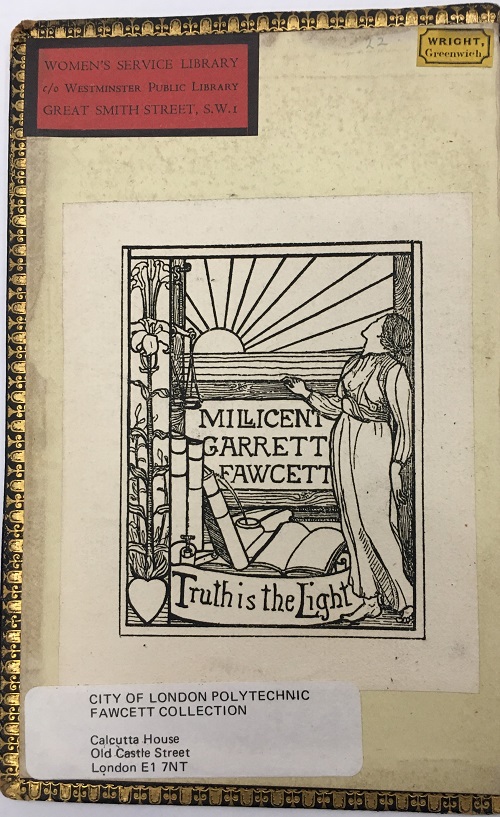
Find out more about:
- Our rare books
- Donations to the Library in the annual reports of the London Society for Women’s Service
- The Women’s Library
Please read our comments policy before commenting


